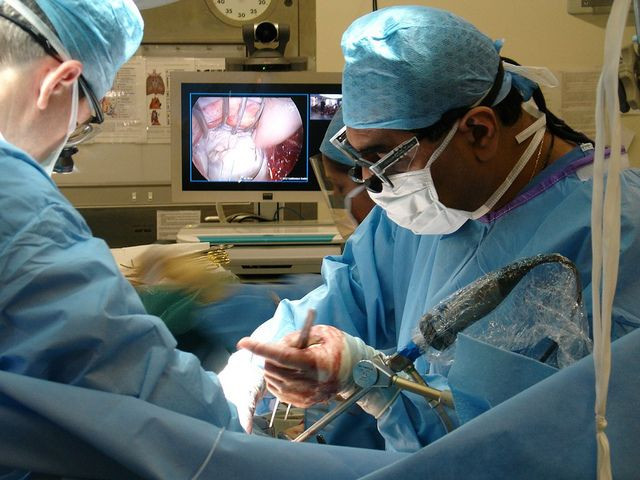Despite Evidence, Heart Surgery Probably Doesn't Increase Risk Of Cognitive Decline

More than 300,000 invasive heart procedures are performed annually on American seniors, while this same crowd also shows high rates of dementia. Are heart procedures and mental decline somehow related? A new study finds cognitive decline is no more common among seniors following an invasive heart procedure, such as catheter ablation or carotid revascularization, than in seniors who never undergo these operations.
Annually, surgeons perform about 200,000 coronary artery bypass graft (CABG) surgeries, 50,000 carotid revascularizations, 50,000 cardiac valve replacements or repairs, and 10,000 catheter ablations for atrial fibrillation on Americans, 65 or older. Early studies reported a high prevalence of cognitive impairment after CABG, with researchers attributing the cause to surgical factors such as anesthesia. Later studies suggested impairment following CABG predated the procedure. Regarding other invasive heart procedures, researchers have arrived at mixed results, with some studies estimating
For the current study, then, the researchers, led by Dr. Howard Fink of the Geriatric Research Education & Clinical Center at Veterans Affairs in Minneapolis, reviewed and summarized evidence from existing studies.
Fink and his colleagues began with a search of internet databases for English-language studies published between 1990 and January 2015. They deemed 21 total trials and cohort studies eligible for their review. Among the studies, 80 percent of the patients were men and at an average age of 68. Next, the research team analyzed intermediate and long-term cognitive outcomes following the procedures as reported in each of the studies.
They discovered little to no difference in cognitive outcomes between the surgical patients and those who did not undergo invasive heart procedures.
“Results suggest that persistent cognitive impairment after the studied cardiovascular procedures may be uncommon or reflect cognitive impairment that was present before the procedure,” wrote the authors.
Nevertheless, the authors warn their readers that this result is based on relatively few studies. They also note there is no standard definition for cognitive decline. In the different studies researchers used a variety of descriptions, potentially blurring the overall results, and so “there is substantial uncertainty about these estimates,” Fink and his co-authors noted.
Increasingly, older adults are having invasive heart procedures, in part owing to advances in robotic surgery. Though uncertain, these results will ease the minds of many who contemplate a heart procedure.
Source: Fink HA, Hemmy LS, MacDonald R, et al. Intermediate- and Long-Term Cognitive Outcomes After Cardiovascular Procedures in Older Adults: A Systematic Review. Annals of Internal Medicine. 2015.



























